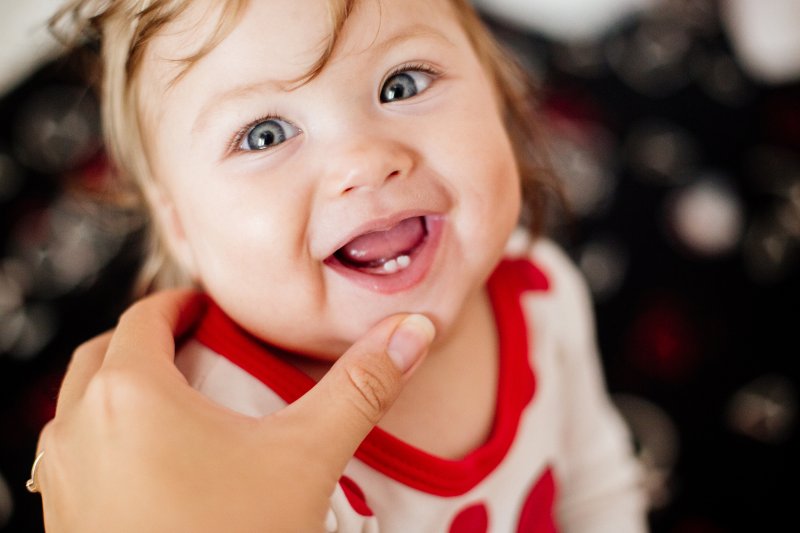Watch Out for Baby Bottle Tooth Decay!
April 7, 2023

If you had to guess, what would you say is the most common chronic condition among Americans? Joint pain? Allergies? Maybe headaches or migraines?
As it turns out, the answer is tooth decay! This condition is incredibly common among people of all ages, and babies aren’t an exception.
So-called “baby bottle tooth decay” can happen for quite a few reasons, so it’s worth being vigilant about it from an early age. Here are some things you should watch out for, and that you may want to avoid.
What Can Cause Baby Bottle Tooth Decay?
It can be easy to think of tooth decay as something that naturally just happens, but it’s actually the product of a bacterial infection in the mouth. Babies aren’t born with these bacteria in their mouth; instead, they’re usually transferred from parent to child via saliva at some point.
The bacteria themselves aren’t necessarily an issue, but as these bacteria consume sugars they secrete acids that dissolve enamel. Baby bottle tooth decay is usually a product of prolonged exposure to sugary drinks, like if your child sleeps with their bottle as a substitute for a pacifier.
How to Prevent Baby Bottle Tooth Decay
If you’re trying to keep your baby from developing cavities, there are a few things that you can do to protect them. The first is to try and prevent them from contracting the bacteria that cause tooth decay in the first place. Avoid sharing saliva with your child, and try and clean their gums with gauze or a washcloth after eating.
You should also be careful about how many sugary drinks you give to your child. Ideally, you should fill baby bottles with only formula or breastmilk, and have them finish the bottle before naptime.
Once your child’s teeth start to come in, you should clean them thoroughly. Brush their teeth gently with a smear of fluoride toothpaste twice a day, until they’re old enough to do it on their own.
Finally, you should start taking your child to a dentist for exams once their teeth start to sprout, as early as the age of 1. A dentist will be able to help you keep your child’s teeth in the best shape possible.
About the Author
Dr. Allen Pearson opened Wylie Children’s Dentistry in 2003, and since then he has helped thousands of children get the highest quality of dental treatment in an environment that will make any child feel at ease! Dr. Pearson received his dental degree from the Creighton University School of Dentistry, then completed his residency at the University of Nebraska Medical Center. He’s an active member of the American Academy of Pediatric Dentistry and the Texas Dental Association.
If you have any questions about baby bottle tooth decay, he can be reached at his website or by phone at (972) 429-7070.
